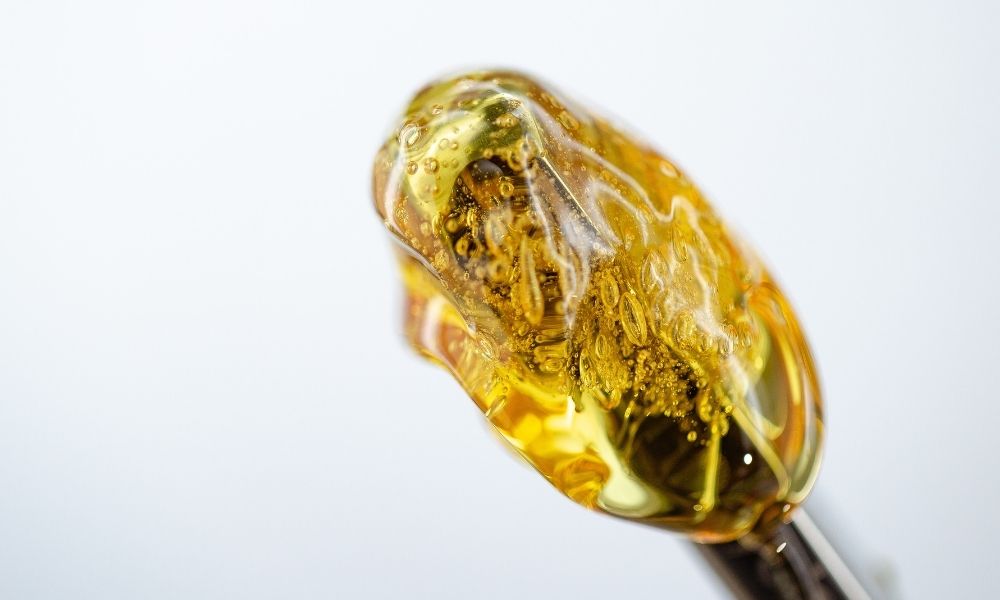Understanding What CBD Distillate Is
May 20, 2021

CBD has become popular and plentiful since the 2018 farm bill legalized the cultivation and extraction of hemp. However, amongst most CBD products, other cannabinoids are also in the oils and tinctures. This isn’t a bad thing—in fact, the cannabinoids cause an “entourage effect” with the CBD to make it more potent—but maybe you still just desire something purer. Perhaps you want something that endeavors to eliminate those other cannabinoids as much as possible. To do that, you’ll need an understanding of what CBD distillate is.
What Is CBD Distillate?
CBD distillate is when the oil from CBD hemp flower is extracted and refined into a highly purified form that strives to minimize the number of ulterior cannabinoids within the oil. The goal of CBD distillate is to be as purely CBD as it can be—just short of becoming CBD isolate, which is an entirely pure CBD product. While it may be noted there is THC within CBD distillate, rest easy that the THC content is less than 0.3% and will have no effect on you as you experience the benefits of CBD. In all, an important aspect of understanding what CBD distillate is that it is not solely comprised of CBD, but its complex refinement process attempts to minimize any cannabinoids that are not CBD for the purest experience possible.
How Is Distillate Made?
Distillation is a refinement process. The CBD oil is extracted from the cannabis plant and is then distilled to try and isolate the CBD and can be purified to 90% or more of just CBD. The solution is heated to the point that the CBD is vaporized and turned back into a liquid in a separate container from the original solution, while expelling most of the unwanted substances for a highly refined final product. This also helps standardize CBD products because cannabis plants like hemp can have unpredictable variants of cannabinoids within each plant.
Is Distillate Regulated?
CBD distillate is not regulated. While the FDA has not given CDB distillate an official approval, CBD was removed from the list of controlled substances in the same 2018 farm bill legalizing hemp plants to be produced and distributed. However, THC is still regulated because it causes a “high” sensation, meaning you can be confident that manufacturers of CBD distillates are ensuring their products contain as little THC as possible.
FAQ
What Is CBD Distillate?
CBD distillate is when the oil from the CBD hemp flower is extracted and refined into a highly purified form that strives to minimize the number of ulterior cannabinoids within the oil. The goal of CBD distillate is to be as purely CBD as it can be—just short of becoming CBD isolate, which is an entirely pure CBD product.
What to Choose: CBD Isolate vs. CBD Distillate?
Choosing between Isolate and Distillate depends on the needs of the individual. Isolate can simply be sprinkled atop bowls, beverages or mixed into oil/butter for cooking and baking use. The distillate is a viscous liquid that can be added to blunts, atop bowls, or mixed into oil for baking and cooking needs.
How to Use CBD Distillate?
There are a few ways to use CBD distillate, including:
- Take it orally as is
- Mix into oil for use in edibles
- Smoke it straight in a dab rig
- Add some to a blunt to take your Hemp smoking experience to a new level
- Top off a bowl of your choosing to elevate your smoke sesh
- Use a Nectar Collector to enjoy Distillate straight from the container
Remember that CBD distillate is highly potent, and a little goes a long way.
How to Make CBD Distillate?
The process of creating CBD distillate can be complex. It involves vaporizing the cannabinoids and collecting them in a distillation cooling system. This separates the cannabinoids from chlorophyll, terpenes, flavonoids, and more. All of which require solvents or CO2 equipment for higher quality and larger yield. Distillation is a post-processing extraction technique done after an initial solvent-based extraction, often using hydrocarbon or ethanol solvent.

